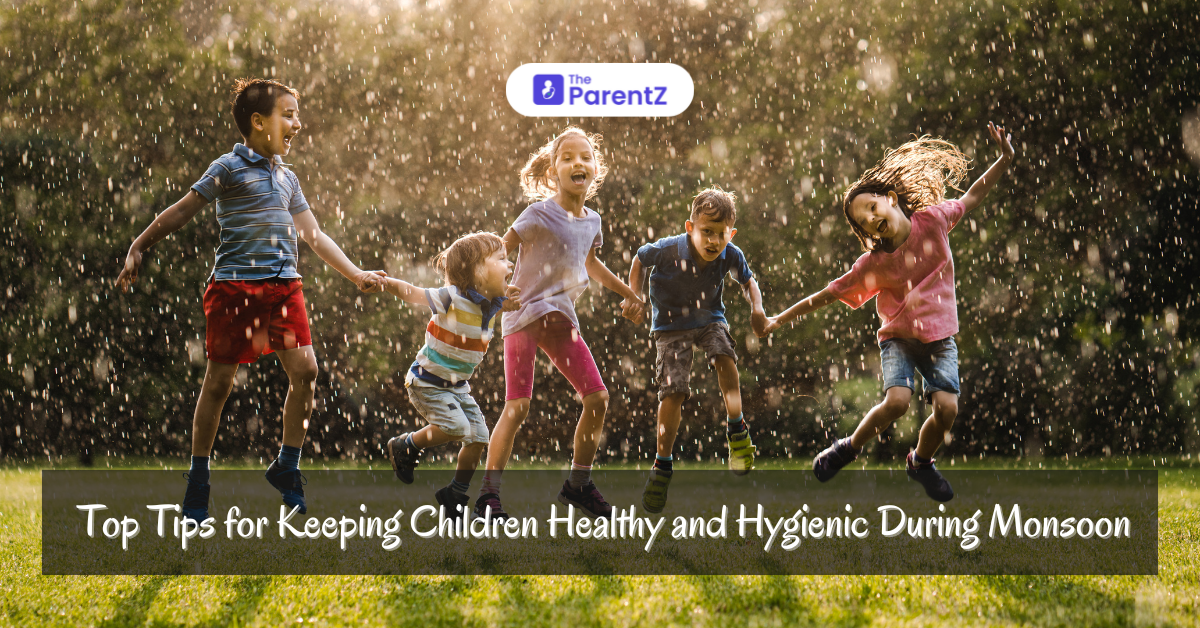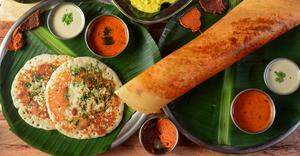The monsoon season brings much-needed relief from the scorching summer heat, but it also comes with its own set of challenges, especially for parents concerned about their children’s health and hygiene. The increased humidity, stagnant water, and cooler temperatures create an ideal environment for various infections and illnesses. As a parent, ensuring your child stays healthy and hygienic during this season is crucial.
Tips to navigate through the monsoon safely
Here are some top tips to help you navigate the monsoon safely.
1. Maintain Personal Hygiene
Personal hygiene is the first line of defense against infections. Teach your children the importance of regular handwashing, especially before meals and after using the restroom. Using soap and water or an alcohol-based hand sanitizer can significantly reduce the risk of infections.
- Frequent Handwashing: Encourage your children to wash their hands thoroughly with soap and water. Make it fun by singing a song while washing hands to ensure they spend enough time cleaning.
- Nail Care: Keep your child’s nails trimmed and clean to prevent the accumulation of dirt and germs.
- Bathing Routine: Ensure your child takes a bath daily, preferably with an antiseptic soap, to remove any germs accumulated during the day.
2. Protect Against Mosquitoes
Mosquitoes are a significant concern during the monsoon, as they breed in stagnant water and are carriers of diseases like dengue, malaria, and chikungunya. Protecting your child from mosquito bites is essential.
- Use Mosquito Repellents: Apply child-safe mosquito repellent creams or lotions on exposed skin. Ensure the repellents are suitable for children.
- Wear Protective Clothing: Dress your child in long-sleeved shirts and pants, especially during early morning and evening hours when mosquitoes are most active.
- Use Mosquito Nets and Screens: Ensure your child’s sleeping area is protected with mosquito nets. Use window and door screens to keep mosquitoes out of the house.
3. Ensure Clean Drinking Water
Contaminated water is a common cause of waterborne diseases like typhoid, cholera, and diarrhea during the monsoon. Ensure that your child drinks only clean and safe water.
- Boil Water: Boiling water is one of the most effective ways to kill germs. Boil drinking water for at least 10 minutes before cooling and storing it in a clean container.
- Use Water Purifiers: Invest in a good quality water purifier to ensure the water is free from contaminants.
- Avoid Street Food and Unsealed Beverages: Street food and unsealed beverages can be a source of infection. Encourage your child to eat home-cooked meals and drink from sealed bottles.
4. Maintain a Nutritious Diet
A balanced diet is crucial for maintaining a strong immune system, especially during the monsoon when the risk of infections is higher. Include immune-boosting foods in your child’s diet.
- Fruits and Vegetables: Ensure your child consumes a variety of fruits and vegetables rich in vitamins and minerals. Wash them thoroughly to remove any dirt or pesticides.
- Probiotics: Include probiotic foods like yogurt in their diet to promote gut health and boost immunity.
- Hydration: Keep your child well-hydrated with clean water, fresh juices, and soups. Avoid carbonated drinks and sugary beverages.
5. Keep the Environment Clean
A clean environment helps prevent the spread of infections and diseases. Take steps to ensure your home and surroundings are hygienic.
- Avoid Stagnant Water: Regularly check for and eliminate stagnant water around your home to prevent mosquito breeding.
- Clean and Disinfect Surfaces: Frequently clean and disinfect surfaces that are often touched, such as doorknobs, light switches, and toys.
- Ventilation: Ensure proper ventilation in your home to reduce humidity and prevent the growth of mold and mildew.
6. Dress Appropriately
Dressing your child appropriately for the monsoon weather can help prevent illnesses related to temperature fluctuations and dampness.
- Waterproof Clothing: Invest in good quality waterproof jackets, raincoats, and boots to keep your child dry during rains.
- Layering: Dress your child in layers that can be added or removed according to the temperature to prevent them from getting too cold or too hot.
- Dry Clothes: Always ensure your child changes out of wet clothes and shoes immediately to prevent fungal infections and colds.
7. Encourage Physical Activity
While the monsoon might limit outdoor play, it’s important to keep your child physically active to boost their immunity and overall health.
- Indoor Activities: Engage your child in indoor physical activities like dancing, yoga, or simple exercises.
- Limit Screen Time: Encourage your child to engage in creative and physical indoor games rather than spending excessive time on screens.
8. Monitor Health Symptoms
Be vigilant about any signs of illness in your child and take prompt action to prevent the condition from worsening.
- Common Symptoms: Look out for common symptoms like fever, cough, cold, diarrhea, and rashes.
- Consult a Doctor: If your child shows any signs of illness, consult a doctor promptly to get the right treatment and avoid complications.
Conclusion
The monsoon season, while refreshing, brings with it a higher risk of infections and illnesses, especially for children. By maintaining personal hygiene, protecting against mosquitoes, ensuring clean drinking water, providing a nutritious diet, keeping the environment clean, dressing appropriately, encouraging physical activity, and monitoring health symptoms, you can significantly reduce these risks. These tips will help you keep your child healthy and hygienic during the monsoon, ensuring they enjoy the season safely.








Be the first one to comment on this story.